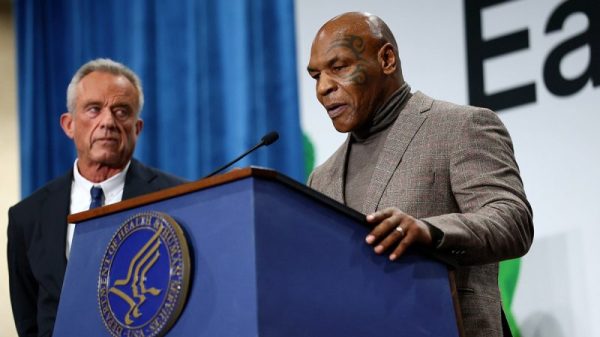A viral meme making the rounds says that “American badgers look like they’re about to drag you into a back alley and pull a shiv on you to demand money for their meth habit. European badgers look like they’re about to invite you over for a cup of tea and some custard creams at their little cottage in the country.”
The difference in caricature may help explain the widely differing legal and environmental approaches to dealing with badgers as “pests.” In America, badgers in Kansas (for instance) are a “protected fur-bearing species that may be hunted or trapped.” In Europe, however, they are insulated from practically any kind of human interference whatsoever. This difference in protections is more than an arcane legal triviality–in some important ways, in fact, badgers’ legal protections help illuminate the labyrinthine extent of environmental regulations globally. They may also (we hope) portend the impending decline of overweening eco-tyranny.
Take Holland, for instance. Commuter trains between Den Bosch and Eindhoven were stopped recently, and passengers forced to add an hour-long detour to their daily grind. One might be forgiven for blaming this on an obscure Dutch rail strike or the like, but alas, the culprit was badgers (the tea-swilling kind, not the shiv-pulling kind). Dutch badgers have apparently taken to burrowing under train tracks, possibly delighting (as I feel badgers would) in the mayhem caused by the fact that Dutch engineers are forbidden from removing them. Pitting mankind’s prevailing modern environmental ethos against the basic strictures of modern transportation engineering is, from a badger’s perspective, brilliant.
Authorities are in a bit of a pickle. Europe’s Nature Conservation Act prevents wild animals from being “disturbed or removed from their natural environments.” This creates something of a Catch-22 when wildlife decides that its favored “natural environment” is a decidedly human-made one. Badgers happen to like the dry, elevated railway berms and apparently have no finicky qualms about railcars whizzing inches over their heads. And so Dutch engineers are scrambling to come up with ways to keep the modern railway system running while not falling afoul of a law which forbids the badgers’ outright removal.
The Dutch example is the epitome of regulatory sclerosis—the moment when a fine network of restrictive rules and laws becomes so obstructive that it palpably slows societal function. Some of this derailing is accidental—the end of a line laid with good intentions. Much of it, however, is by design: Many who successfully advocate for environmental legislation like Europe’s Nature Conservation Act are fixedly determined to roll back human living standards, by “prioritizing nature above human consumption and development.” They do this under the misguided apprehension that a pre-industrial age operated in a more harmonious balance with nature. This notion is, of course, complete balderdash. The ostensibly bucolic pre-industrial days were no gentler on the environment (think mass deforestation and wildlife extermination) than it was on humanity. Advocating for the return to an age when children could be reliably counted upon to die of typhus is no more likely to “save” nature than advocating for the return to an age when slash-and-burn was de rigueur.
Voters tend to like environmental protection measures in the abstract, but when it starts to impinge on their lived experience (by, say, tacking an hour onto their commute), there will be political hell to pay. In some sectors, this has already begun. Massive protests by Dutch farmers over increasingly draconian environmental restrictions prompted an historic political upheaval in Holland’s parliament, with the Farmer-Citizen movement winning an upset election on a platform that pushes back against meddlesome bureaucracy. In Spain, as well, protests against over-stringent environmental restrictions threaten to unbalance the prevailing power structures.
We will see more of this. As ever more stringent measures are taken to “curb climate change,” for instance, ever more anger will erupt over their impositions. The days of distant elites toying with our lives, in other words, are numbered. The hit reality series Clarkson’s Farm illustrates this tension in a delightfully comedic way. It depicts the tribulations of a modern, nature-loving British couple attempting to navigate the vagaries of local, national, and trans-national restrictions on their aspirations. Interestingly enough, the star of the show Jeremy Clarkson — like the Dutch authorities — finds himself in a badger conundrum as well, as their expanding population threatens to infect his cow herd with tuberculosis.
His advisor remarks: “Unfortunately, Jeremy, you’re facing one of the most heavily legislated mammals in the country.”
Jeremy replies: “You can’t shoot them?”
“No.”
“Or gas them?”
“No.”
“Or fill in their holes?”
“No. It’s always no.”
Clarkson’s Farm is riven with Jeremy’s astonishment and frustration at the degree to which he is prevented from ‘just getting on with things’ by faceless bureaucracies. The show’s popular success is a testament to the nerve it strikes within a generally fed-up public. Those nattering nabobs of nannyism, who for decades have found ways to forestall the independent actions of their fellow men, may soon discover that those tracks lead nowhere.





































